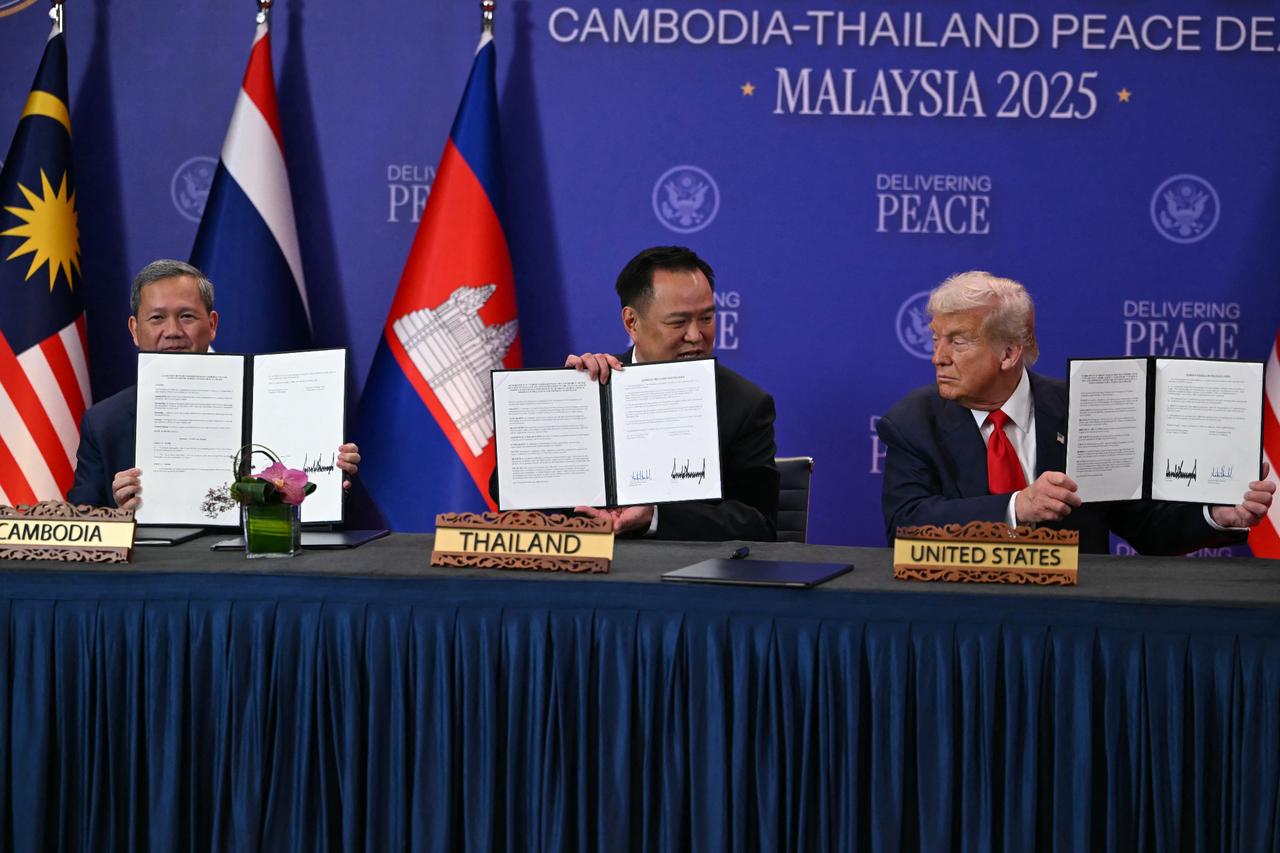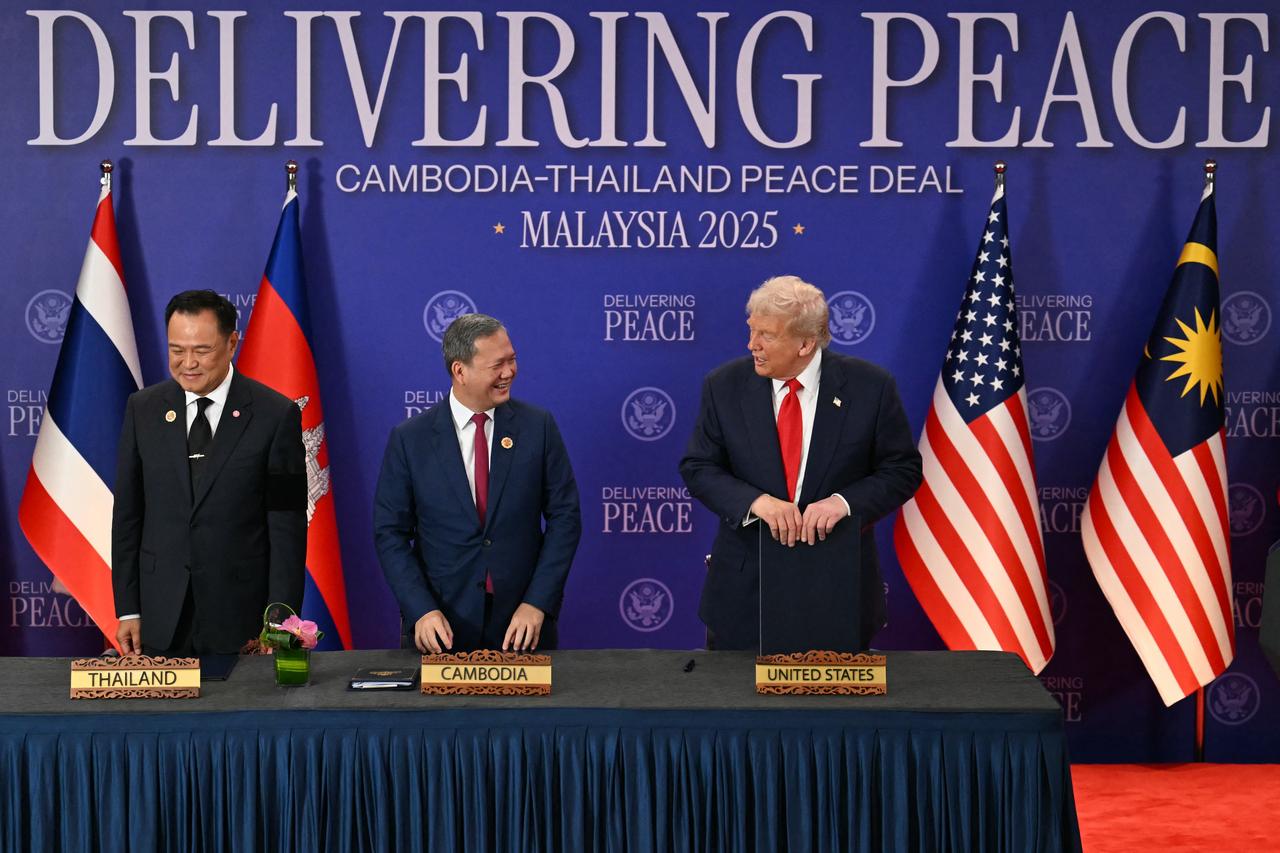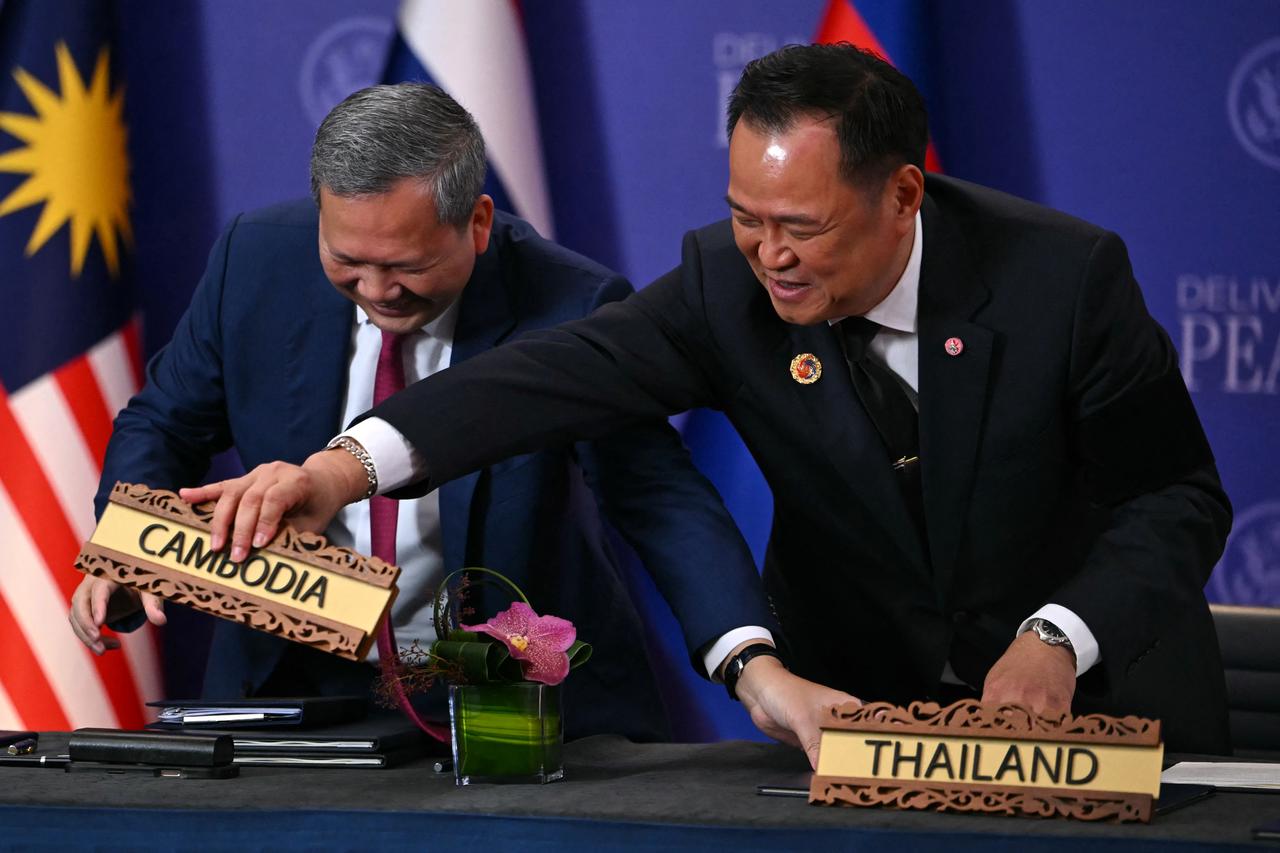
Cambodia and Thailand signed a peace agreement in Malaysia on Sunday aimed at resolving their long-standing border dispute, following months of deadly clashes that displaced thousands of people.
U.S. President Donald Trump co-signed the deal in Kuala Lumpur alongside Thai Prime Minister Anutin Charnvirakul, Cambodian Prime Minister Hun Manet, and Malaysian Prime Minister Anwar Ibrahim.
The signing took place during the 47th ASEAN Summit, the first stop on Trump’s Asia tour, which will later include talks with Chinese President Xi Jinping.

The agreement provides for the release of 18 Cambodian prisoners of war on humanitarian grounds, according to a statement from Cambodia’s Foreign Ministry.
“Both countries are agreeing to cease all hostilities and work to build good, neighborly relationships,” Trump said at the ceremony. “Under this agreement, observers from ASEAN countries, including Malaysia, will be deployed to make sure that the peace prevails and endures.”
Calling the accord a “monumental step,” Trump said he was “proud to broker” the peace deal and vowed continued U.S. support for regional stability. “We do a lot of business with both of them,” he added. “We have to use that business to make sure they don’t get into wars, but this is going to be a very long peace.”

The border conflict between Cambodia and Thailand flared in July, resulting in heavy fighting along the disputed frontier areas. A ceasefire brokered in part by Trump and Anwar brought an end to the clashes, though both sides later accused each other of minor violations.
Malaysia’s Foreign Minister Mohamad Hasan, who helped mediate the talks on behalf of ASEAN, said the latest agreement focuses on establishing regional observers in conflict zones and removing heavy weaponry.
“Both countries must withdraw their respective heavy weapons from the relevant areas and make efforts to remove and destroy the mines that have been planted along their borders,” Mohamad said.
“We want there to be no more ceasefire violations.”
Hun Manet thanked Trump for his role in facilitating the accord and said Cambodia had nominated the U.S. president for the Nobel Peace Prize, “reflecting the gratitude of our people.”
He said Cambodia would continue to “work closely with Thailand and all our partners to ensure that this peace endures and brings tangible benefit to our peoples.”
“Our two commanders are discussing the start of a partial withdrawal in the first phase as an indication of our willingness to implement the joint declarations,” Manet added.
Thai Prime Minister Charnvirakul also expressed appreciation to all parties involved, saying, “This declaration reflects our will to resolve differences peacefully, in full respect of sovereignty and territorial integrity.” He confirmed that both sides would begin withdrawing heavy weapons “to ensure the safety of our people and build confidence and trust.”
Malaysian Prime Minister Anwar praised the agreement as a “significant achievement” and commended Trump for his “concern, empathy, and commitment to support this peace deal.”
Analysts said that while the ceasefire and prisoner releases mark progress, a comprehensive peace pact between the two Southeast Asian neighbors remains outstanding.
Trump, meanwhile, briefly addressed regional tensions between Afghanistan and Pakistan, telling reporters, “I’ll get that solved very quickly,” and adding that he was confident both sides would reach an agreement soon.